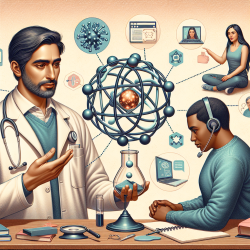Introduction
The discovery of the Higgs Boson at CERN marked a monumental moment in the field of physics. But what does this have to do with online therapy practices? Surprisingly, the principles of scientific inquiry and innovation seen in the Higgs Boson research can offer valuable insights for therapists looking to enhance their practices. This blog will explore how the outcomes of the Higgs Boson research can inspire therapists to improve their skills and encourage further research in their field.
Understanding the Higgs Boson
The Higgs Boson, often referred to as the "God Particle," was a theoretical particle predicted by physicists to explain why particles have mass. Its discovery in 2012 at CERN's Large Hadron Collider confirmed the existence of the Higgs field, a critical component of the Standard Model of particle physics. This discovery was the culmination of decades of research and collaboration across the globe.
Lessons for Online Therapy
While the Higgs Boson discovery is rooted in physics, the journey to its discovery offers several lessons that can be applied to online therapy practices:
- Collaboration and Networking: Just as physicists from around the world collaborated on the Higgs Boson research, therapists can benefit from networking and collaborating with peers. Sharing insights and strategies can lead to improved therapy outcomes.
- Embracing Innovation: The use of advanced technology at CERN can inspire therapists to embrace new tools and platforms in online therapy. This could include utilizing virtual reality for immersive therapy sessions or AI for personalized therapy plans.
- Commitment to Research: The persistence and dedication of researchers in the Higgs Boson project highlight the importance of ongoing research in therapy practices. Therapists should stay informed about the latest research and be open to integrating new findings into their practices.
Encouraging Further Research
Therapists are encouraged to delve deeper into the principles of scientific research and apply them to their practices. This could involve conducting small-scale studies within their client base or collaborating with academic institutions for larger research projects. By doing so, therapists can contribute to the body of knowledge in their field and improve therapy outcomes.
Conclusion
The discovery of the Higgs Boson is a testament to the power of collaboration, innovation, and dedication to research. By adopting these principles, therapists can enhance their online therapy practices and contribute to the advancement of their field. To read the original research paper, please follow this link: Higgs Boson: Chapel Hill, CERN, QUB.










